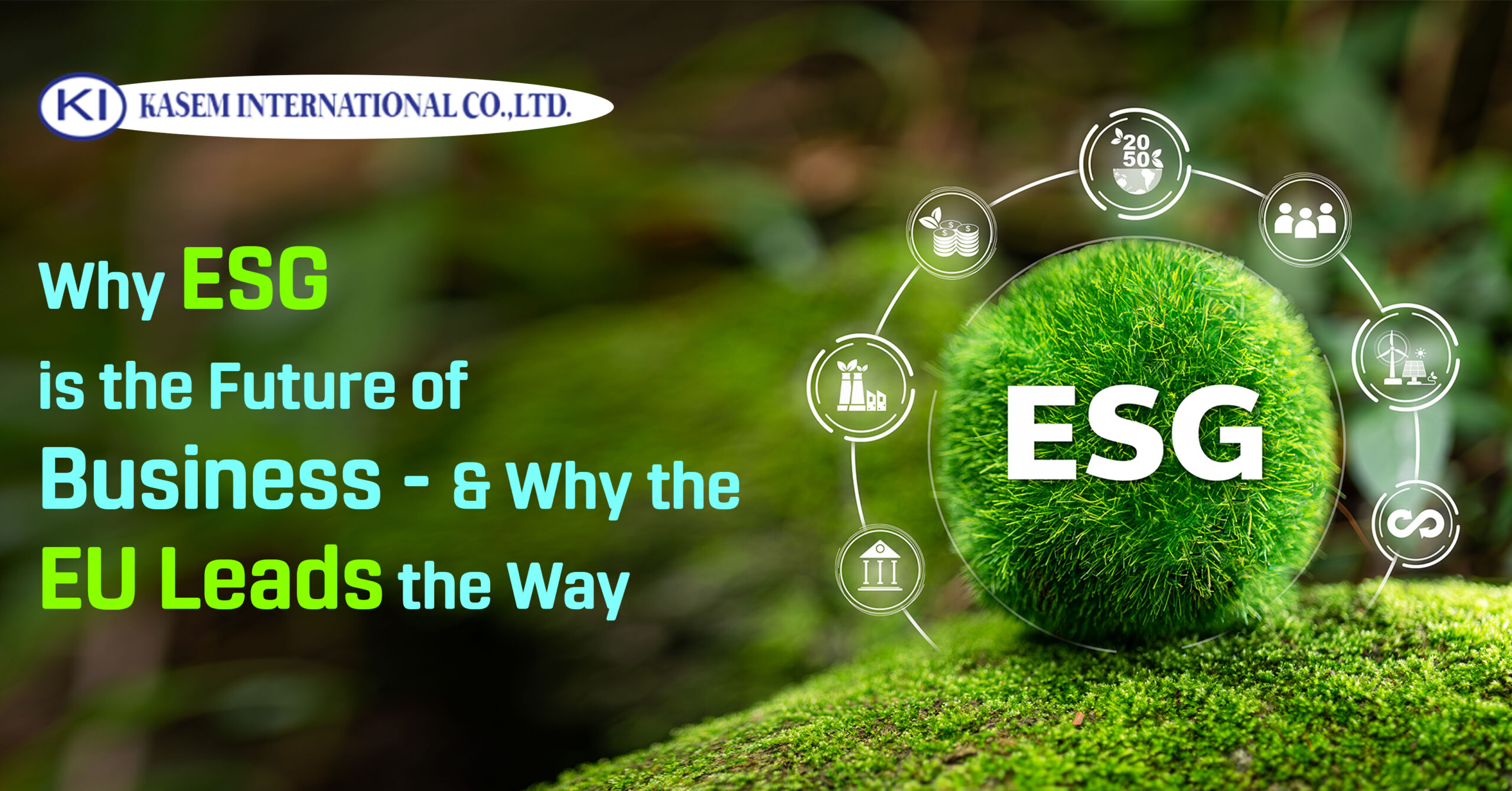

 December 20, 2024
Author Name: Nilakshi Biswas
December 20, 2024
Author Name: Nilakshi Biswas
Why ESG is the Future of Business – And Why the EU Leads the Way
In today’s rapidly evolving business landscape, Environmental, Social, and Governance (ESG) has emerged as a critical framework for companies striving to thrive in a world increasingly focused on sustainability and ethical responsibility. Far from being a passing trend, ESG is becoming a global benchmark for businesses, particularly those operating internationally. Leading the charge in this movement is the European Union (EU), setting an example for how companies everywhere must adapt to remain relevant.
What is ESG?
At its core, ESG provides a structured approach for companies to address non-financial risks and opportunities tied to their operations. It covers:
Environmental (E): Tackling issues like carbon emissions, waste management, pollution, and resource efficiency.
Social (S): Ensuring fair labor practices, diversity, community engagement, and health and safety standard
Governance (G): Promoting ethical behavior, diversity in leadership, shareholder rights, and transparent decision-making.
These pillars guide businesses to create long-term value while addressing pressing societal and environmental concerns.
Why ESG Matters Now More Than Ever
In today’s eco-conscious and ethically-driven world, ESG has become a non-negotiable. Businesses are under increasing scrutiny from consumers, investors, and regulators. ESG is no longer just about “doing the right thing”; it’s about risk management, reputation building, and staying competitive.
Investor Expectations: Modern investors prioritize companies with strong ESG performance, seeing them as better equipped to handle long-term challenges.
Global Relevance: Issues like climate change and inequality are universal. Companies that fail to address these concerns risk falling behind.
Regulatory Pressure: Governments and organizations worldwide are pushing for stricter ESG reporting standards, with the EU leading the charge.
Reputation and Growth: Consumers are drawn to businesses that embody sustainability and fairness, creating a competitive edge for ESG-compliant organizations.
The EU: A Global ESG Leader
The European Union is setting the gold standard for ESG integration with its comprehensive and mandatory regulations. The Corporate Sustainability Reporting Directive (CSRD) is a landmark initiative requiring businesses operating in the EU to disclose extensive ESG data, aligning their operations with global sustainability goals.
Key elements of the EU’s ESG framework include:
Mandatory Reporting: Companies must disclose detailed information about their environmental impact, social contributions, and governance practices.
Scope: The CSRD applies not just to EU-based businesses but also to non-EU companies with significant operations in the region.
Double Materiality: Companies must report on how their activities impact both financial performance and societal well-being.
Phased Implementation: With regulations beginning in 2024 and full implementation by 2028, the EU is paving the way for a uniform global ESG reporting standard.
The EU’s leadership highlights the importance of transparency and accountability in sustainability. By aligning business goals with the Paris Agreement and the UN Sustainable Development Goals, the EU is ensuring its companies are not just compliant but also competitive on a global scale.
Why Every Global Business Must Embrace ESG
For companies operating internationally, ESG compliance isn’t optional—it’s essential. The interconnectedness of global markets means that businesses must align with stringent ESG standards like those set by the EU to access international markets, attract investors, and maintain credibility.
Organizations that fail to prioritize ESG risk:
Losing Access to Capital: Investors increasingly favor businesses with strong ESG metrics.
Regulatory Backlash: Non-compliance with frameworks like the CSRD can result in penalties and reputational damage.
Falling Behind Competitors: ESG leaders gain market share, consumer loyalty, and operational resilience.
How to Integrate ESG into Your Business
To succeed in the ESG-driven era, companies need a proactive strategy. Here’s how:
Understand Materiality: Identify the ESG factors most relevant to your industry and stakeholders.
Set Measurable Goals: Commit to achievable targets for emissions reduction, diversity, and governance improvements.
Adopt Global Standards: Use frameworks like the Global Reporting Initiative (GRI), Sustainability Accounting Standards Board (SASB), or the EU’s European Sustainability Reporting Standards (ESRS).
Engage Stakeholders: Collaborate with employees, investors, and communities to align with shared ESG values.
Monitor and Report: Consistently evaluate progress and disclose ESG performance to build trust and accountability.
The Path Forward
The EU’s pioneering efforts have positioned it as a global leader in ESG, but the ripple effects are undeniable. As ESG becomes a universal standard, businesses worldwide must evolve to remain competitive. This is more than a regulatory requirement; it’s a chance to drive innovation, foster trust, and contribute to a sustainable future.
For companies willing to embrace this transformation, ESG isn’t just an obligation—it’s an opportunity to lead.
Recent Posts
- Choosing the Right Baby Products Manufacturer in Thailand: What Global Brands Need to Know
- Plastic Injection Molding in Thailand: Benefits, Process, and Industry Insights
- Top Qualities to Look for When Choosing Mold Makers in Thailand
- The Role of Baby Kitchenware Product Manufacturers in Ensuring Safe and BPA-Free Products
